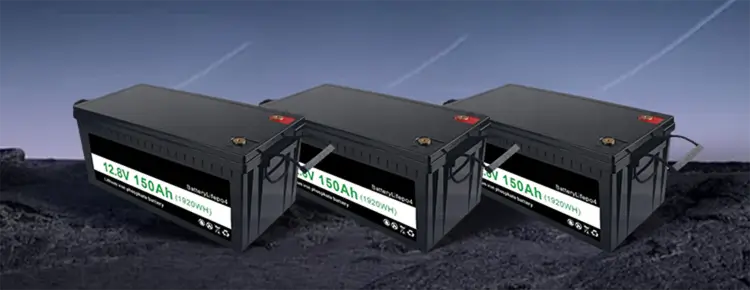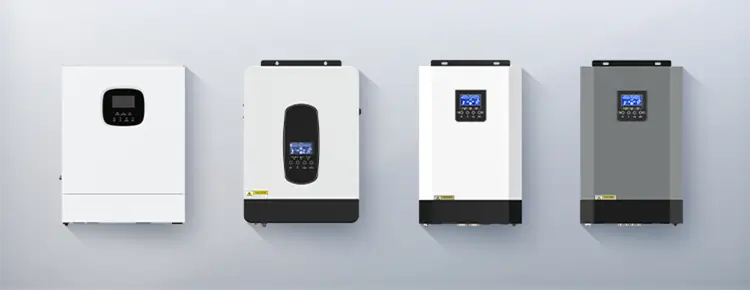



Blog
Hot Category
Latest Blog
31 Dec 2024
Eli
In today’s fast-paced, technology-driven world, UPS (uninterruptible power supply) systems have become an essential part of critical infrastructure. Whether it’s protecting data in a data center, ensuring the safety of medical equipment in a hospital, or maintaining the smooth operation of an industrial system, UPS systems are key to ensuring that power outages or interruptions don’t lead to catastrophic consequences. One of the most critical components in a UPS system is the battery, as it stores the energy needed to keep the system running during a power outage. Currently, two types of batteries dominate the UPS market: LiFePO4 (lithium iron phosphate) batteries and lead-acid batteries. But why are these two battery types the top choice for UPS systems? Let’s take a closer look at the reasons behind this decision.

When it comes to energy storage, LiFePO4 batteries generally have a higher energy density than lead-acid batteries. This means that, in the same physical size, LiFePO4 batteries can provide more power and longer runtime than lead-acid batteries. LiFePO4 Batteries: Lithium batteries are known for their light weight and high energy density. They are often a better choice in UPS systems where space is limited or long-lasting performance is critical. Lead-acid Batteries: While lead-acid batteries have a lower energy density than lithium batteries, they still provide reliable backup power. Because of their long presence in the market, they remain a trusted choice in many industrial applications.
The service life of a battery is an important factor in selecting a UPS system. The longer the service life, the less frequent the replacement, which reduces maintenance costs and downtime. LiFePO4 Battery: One of the outstanding features of lithium iron phosphate batteries is their long cycle life. Typically, LiFePO4 batteries can last 2,000 to 3,000 charge and discharge cycles, which is much higher than lead-acid batteries. Lead-acid Battery: The cycle life of lead-acid batteries is generally around 500 to 1,000 times, which is significantly lower than that of lithium iron phosphate batteries.
Cost is always a consideration when selecting a battery for any application. For UPS systems, there is a trade-off between the initial investment and the long-term benefits. LiFePO4 Battery: Although LiFePO4 batteries tend to have a higher upfront cost compared to lead-acid batteries, the total cost of ownership tends to be lower in the long run due to their longer service life and fewer replacements. Lead-acid Batteries: Lead-acid batteries have a lower initial cost, making them an attractive option for organizations with limited budgets. However, due to their shorter lifespan and higher maintenance requirements, they can incur higher long-term costs given frequent replacement and disposal.
Safety is a key concern, especially in environments where UPS systems protect life-saving equipment or highly sensitive data. LiFePO4 Batteries: Lithium iron phosphate batteries are known for their excellent thermal stability and safety. LiFePO4 is inherently stable and not prone to thermal runaway, which can cause other lithium-ion chemistries to catch fire. This makes LiFePO4 a safer choice in applications where safety is critical. Lead-acid Batteries: While lead-acid batteries have been around for decades and are generally considered safe, they can produce hydrogen gas during charging, which can be hazardous in poorly ventilated areas. Additionally, improper handling or overcharging of lead-acid batteries can cause corrosive sulfuric acid leaks, posing a danger to equipment and personnel.
Another important consideration for UPS systems is how quickly the batteries can be recharged after being discharged. Faster charging times ensure that the UPS is ready for the next power outage or load transfer. LiFePO4 Batteries: LiFePO4 batteries typically have a faster charge time than lead-acid batteries, allowing UPS systems to return to full charge more quickly. This is especially useful in environments where power outages are common and power needs to be restored quickly. Lead-acid Batteries: Lead-acid batteries typically have a slower charge time. While they are reliable, they may take longer to fully charge after a discharge, which can be a disadvantage in time-sensitive environments.
Overall, both batteries play an important role in the world of uninterruptible power supplies, and the right choice depends largely on your specific needs, priorities, and budget. As technology advances and the cost of lithium batteries continues to drop, it is likely that LiFePO4 will become a more attractive option for UPS systems in the coming years.